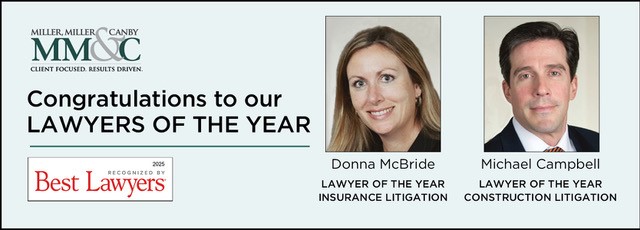Should spouses hold limited liability company membership interests as tenants by the entirety?
We recently advised a married couple on the formation of a limited liability company, which they wanted to own 50/50 by each spouse. This begged the question, should they instead (or are they presumed to) own 100% of the limited liability company as tenants by the entirety? Let’s see:
What is TbyE ownership?
First, a quick refresher on the form of property ownership known as tenants (or tenancy) by the entirety (or entireties) (TbyE).
TbyE is a form of property ownership that is available only to married couples. In short, under a tenancy by the entirety, each spouse owns an undivided interest in the entire property, and there is a right of survivorship in favor of each spouse upon the death of the other spouse.
While most people think of a tenancy by the entirety in the context of real property, under Maryland law personal property, such as membership interests in an LLC, can also be held this way.
There are strict requirements (or unities) that must be satisfied to create a TbyE:
- Title – both spouses must take title to the property;
- Time – title to the property must be received by the spouses at the same time;
- Interest – each spouse must have an equal interest in the whole property;
- Control – each spouse must have the right to use the entire property; and
- Marriage – again, the joint owners must be married.
If the foregoing requirements are satisfied, Maryland law provides for a presumption that property held by spouses is held TbyE, unless the vesting instrument (e.g., deed) indicates otherwise.
Key Attributes of TbyE Ownership in the Context of LLC Membership Interests
TbyE ownership generally affords a high level of creditor protection. Under a tenancy by the entirety, the creditor of only one spouse cannot attach the TbyE property to satisfy a debt owed by that spouse except in limited circumstances (e.g., fraudulent conveyance). Both spouses must be indebted to the creditor for the TbyE property to be in jeopardy of attachment. Section 4A-607 of the Maryland Limited Liability Company Act allows a court to place a charging order on the economic interest of an LLC member to satisfy a debt. Once the charging order is entered, the LLC is required to pay over to the creditor any distributions that would have otherwise been made to the debtor member. This remedy is not available in connection with membership interests held TbyE.
An LLC may still be able to be treated as a disregarded entity even if owned TbyE. Generally speaking, a limited liability company owned by two or more persons is either classified as a partnership or a corporation for tax purposes. The disregarded entity classification is typically reserved for a single member limited liability company. While TbyE ownership, on its face, necessarily involves two people, it is generally recognized that, since the spouses are deemed to be a single owner for state law purposes, they can preserve disregarded entity treatment for tax purposes, which results in simpler tax filings (i.e., reporting on the individual return of the owners as opposed to a separate entity level filing).
It is important to note that TbyE ownership does not require 100% of the LLC’s membership interests to be owned by the spouses. In fact, spouses can own a partnership interest, shares of stock, etc., as tenants by the entirety, even if the equity interest only accounts for a portion of the ownership interests of the subject entity.
Recommendation
Entity formation and organization planning should always be handled on a case-by-case basis, and this is no less true when addressing the question of TbyE ownership. That said, the benefits afforded spouses through TbyE ownership should certainly be a consideration in the context of LLC membership interests and property owned by souses. And, if TbyE ownership is not appropriate, spouses should take steps to rebut the presumption of TbyE ownership under Maryland law.
How MM&C Business Attorneys Can Help
Please contact Miller, Miller & Canby should you have any question dealing with TbyE ownership. Kevin D’Anna is a Principal at Miller, Miller & Canby and a member of the firm’s Business & Tax and Real Estate (finance) practice groups. Kevin regularly advises local and regional businesses of varying size and industry as a trusted outside counsel, providing legal advice on business formation, mergers, acquisitions or disposition, and complex business transactions. He may be reached at kkdanna@mmcanby.com.








Share this Article: